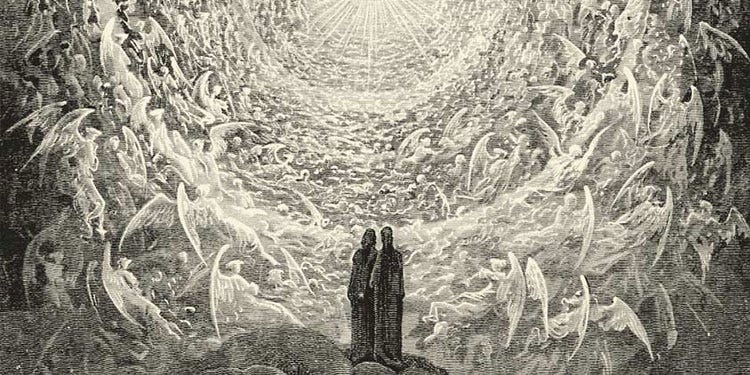A brief statement before we get into it:
I’m revamping this newsletter to have more structure. From here on out, each newsletter will fall into one of five categories: Explainers, Reflections, It’s Catholic, Recommended, and Interviews. As fun as it was to write glorified journal entries when inspiration struck, that approach was not sustainable and I am hoping to continue this writing practice.
Explainers will—shocker—explain elements of Catholicism, like why the faithful believe they eat flesh and drink blood and how saints factor into the religion. Reflections will look like what I’ve previously written where I take a look at my Catholic upbringing and how it affects me today. For It’s Catholic, I will take a piece of media, art, or pop culture, like “Fleabag” or Chappell Roan’s red carpet look at the VMAs, and analyze the Catholic undertones. The Recommended newsletters will offer YouTube videos, movies, books, essays, and more that I feel give a perspective on Catholicism or religion in general. And finally, the Interviews! This is also a humble call-out: If you think yourself or someone you know would want to be interviewed about their Catholic experience or lack thereof, please let me know. I want to talk with more lapsed Catholics!
Now that the housekeeping is out of the way, we enter the central question of this essay: Is Catholicism actually pagan?
Paganism is defined by Wikipedia as a word “applied to any non-Christian religion,” and presuming a belief in "false gods.” The very origin of the term “pagan” came from Christians in the Roman Empire confining everyone who wasn’t a soldier of Christ to one label. Nowadays, paganism may call to mind images of people wearing animal skulls as masks, cavorting naked around a bonfire in a dark forest, or drugging college students in order to sacrifice them. Since paganism was developed by Christians to ostracize non-Christians, on a surface level I would say no, Catholicism is not pagan. But let’s take a closer look at those false gods.

This analysis was born from a conversation between myself and Michael. They argued that Catholicism is not a monotheistic religion. What about the saints? And the Virgin Mary? And importantly the fact that God is somehow composed of three parts? We are reminded of that every time we cross ourselves—which is before and after you say any prayer—touching our head, heart, and each shoulder. In the name of the Father, Son, Holy Spirit. Amen. At the time, I defended Catholicism as a monotheistic religion. But as Michael pressed questions about saints’ place in the Catholic belief system, I felt less and less sure of my stance. Why was I digging in my heels like this anyway?
While the saints aren’t deities themselves, they certainly are conduits for God, embodying him in one way or another, whether that’s through miracles, the presence of stigmata (that’s when the wounds of Jesus Christ appear on the body, marks in the palms of hands and tops of feet), believing in him so passionately that they were martyred, or just serving others really well in his name. The saints are pointedly not gods, but rather they are earthly representatives of God. In fact, all 10,000+ Catholic saints are believed to have experienced beatific visions. That is, direct communication from the big guy himself. The grade school I attended and my home parish is called St. Francis Xavier after the 16th century Catholic missionary. The high school I graduated from is Loyola Academy, named for St. Ignatius of Loyola who founded the Jesuit order. Catholics who seek the sacrament of reconciliation to absolve themselves of their sins are instructed by priests to recite Hail Marys. Statues of Mary flourish in front yards. When I lost a precious earring or misplaced an item, my mom would implore me to pray to St. Anthony, the patron saint of lost things. And I would. Because Catholics believe saints hold spiritual power. Maybe they aren’t technically gods, but they sure do act like them.
In Hinduism, there is one Supreme Being: Brahman. But Brahman also exists simultaneously in the deities Brahma, Vishnu, and Shiva. This sounds a lot like Catholicism with God the Father, Jesus Christ His Son, and the Holy Spirit. You could substitute those nouns into the sentence prior: “But God also exists simultaneously in Jesus Christ and the Holy Spirit.
Based on this rudimentary research, I’ve convinced myself that while Catholicism isn’t pagan (it literally can’t be) it does host elements of polytheism. So, knowing all this, why was I so devoutly defending Catholicism as monotheistic? Because I was educated, dare I say indoctrinated, to believe without a shadow of a doubt the word of that earthly institution the Church. And the Church says Catholicism is monotheistic. I’m still not sure that I won’t get a letter from the Vatican tomorrow excommunicating me for heresy after this.




